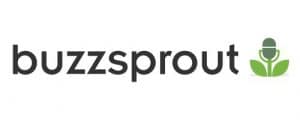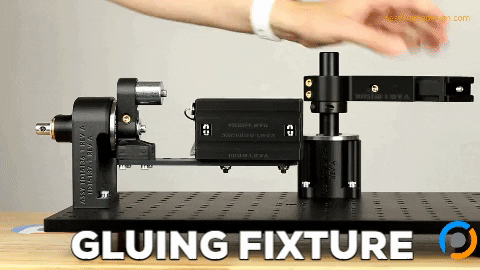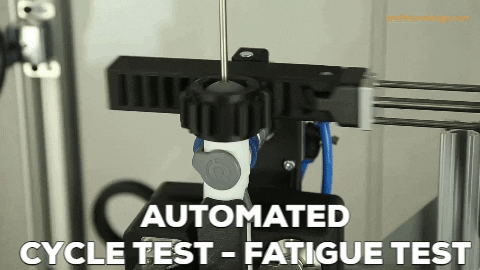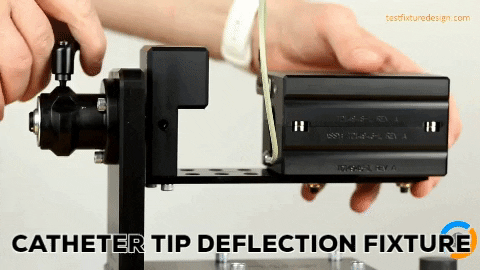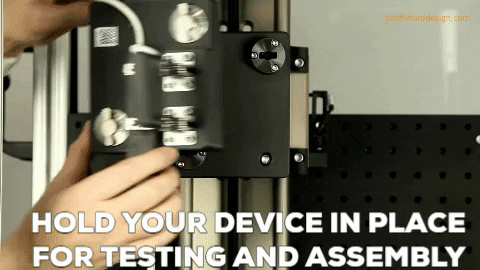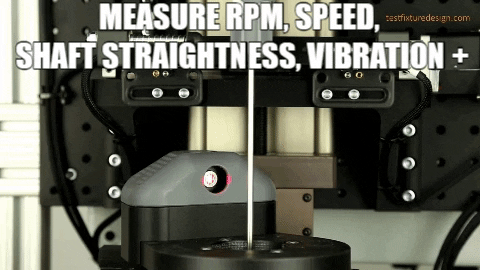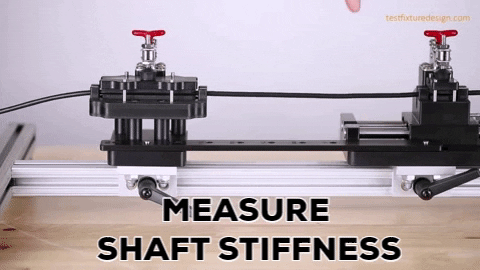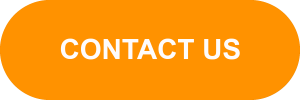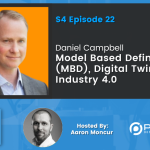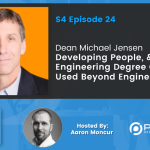James Rogers | R&D Engineering Series – Interview 1 of 6
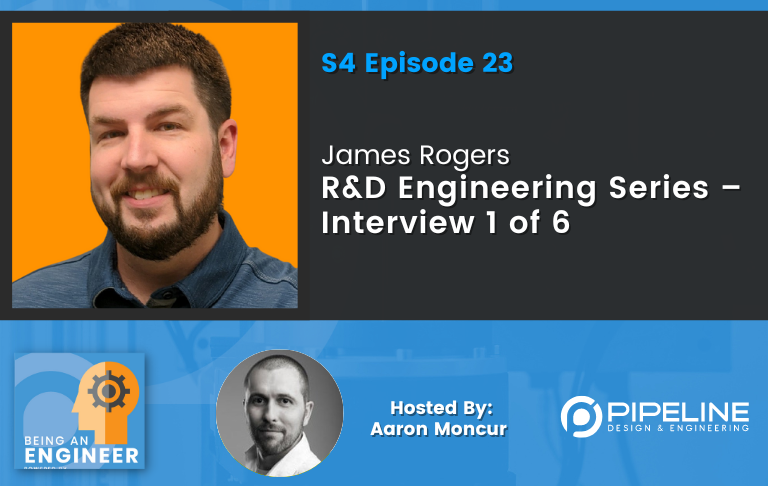
Who is James Rogers?
James Rogers holds a bachelor’s degree in Mechanical Engineering and a master’s degree in additive manufacturing, and has substantial experience in both design and production. He is particularly interested in early-stage product development and rapid prototyping technologies, and says that in a perfect world he would spend his career putting humanity on other worlds and out among the stars, but in the meantime Medical Device work is a great way to help human kind!
In this episode, the first in a series, we explore what it means to be an R&D engineer within the broader discipline of engineering. What is the mindset of an R&D engineer? What special skills are needed? And many more topics…
https://www.facebook.com/ProtoDevAndFab/
protodevandfab@gmail.com
Aaron Moncur, host
EXPAND TO VIEW EPISODE TRANSCRIPTION
Presenter 00:00
Hi, everyone, we’ve set up this being an engineer podcast as an industry knowledge repository, if you will, we hope it’ll be a tool where engineers can learn about and connect with other companies, technologies, people, resources and opportunities. So make some connections and enjoy the show.
James Rogers 00:18
R&d is embracing that we don’t know what we’re doing, we have an idea of where we are, and we have an idea of where we want to be. But how we get there along the way, is a little bit gray or a little cloudier.
Aaron Moncur 00:44
Hello, and welcome to another exciting episode of The being an engineer Podcast. Today we are speaking with James Rogers. James holds a bachelor’s degree in mechanical engineering, and a master’s degree in additive manufacturing, and has substantial experience in both design and production. He is particularly interested in early stage product development and rapid prototyping technologies, and says that in a perfect world, he would spend his career putting humanity on other worlds and out among the stars. But in the meantime, medical device work is a great way to help humankind. James, thank you so much for joining us on the show today.
James Rogers 01:23
Thank you, it’s great to be here.
Aaron Moncur 01:26
So what made you decide to become an engineer?
James Rogers 01:29
Well, my story, I guess, is probably similar to quite a few others that have gotten into the engineering world, I’m not so sure that I chose the engineering life or the engineering life chose me. And I just kind of embraced it, but did some thinking about my my core values earlier this year. My wife is a psychologist who was asking me about this. And one of the things we concluded was that if you boil down everything that makes me me, what it really all comes down to is solving problems. So for me, problem solving is what makes me tick. And so when you combine that with a passion for making things, you know, starting as a kid with Legos and other building toys, and then progressing into hand tools, and more advanced things as you go, combining that also with the insatiable desire to understand how things work in general, just, you know, starting with taking things apart, and then eventually you’re putting them back together again, and they still work. Eventually, you’re making things from, you know, from whole cloth, all of those things combined, kind of describe what it is to be an engineer to me. And so I couldn’t be anything else. Really, it seems that that’s the way it’s shaken out. I actually, when I when I went into college, I started as a computer science major, that’s I thought I wanted to make video games, it turns out that making video games is not the same thing whatsoever as playing the very different craft, it is a very different crap. I was ill prepared for that. And but I did get involved with the robotics team at the University when I was there. So as a naive freshman, I got to spend some time rubbing elbows with an emeritus professor, and some really excellent senior students in the mechanical program that helps me find the path that I really belonged on.
Aaron Moncur 03:22
Wonderful. I love that starting with the core values and kind of working backwards from there. You have spent quite a bit of time doing r&d work. Do you think of yourself specifically as an r&d engineer, or just generally as as an engineer? And and also what do you think distinguishes the two?
James Rogers 03:41
Sure. I wouldn’t say that I necessarily think of myself as an r&d engineer. But when you frame the question that way, it does make me think a little bit. I would think of myself as an engineer, but the distinction in terms that there is something there. And so yes, I would say I am in fact, an r&d engineer. The r&d to me requires embracing ambiguity. And understanding that failure is a part of the process. Where as I think maybe engineering more broadly, that’s less accepted and, you know, expected even. There’s a quote, I think that’s attributed to Einstein, that’s probably not actually his, you know, you can believe everything you read on the internet, Abraham Lincoln kind of a thing that goes, if we knew what it was we were doing, it wouldn’t be called research, would it? And maybe Einstein said that once maybe somebody else said that sounds like something he would have said, but it’s definitely true. If we knew what it was that we were doing, then we would already have done it. And so r&d is embracing that. We don’t know what we’re doing. We have an idea of where we are and we have an idea of where we want to be. But how we get there along the way. He is a little bit grayer a little cloudier, and being able to embrace that ambiguity, take on that challenge and then progress forward anyway. That’s part of what it is to be an r&d to me.
Aaron Moncur 05:14
I love that definition. Go ahead.
James Rogers 05:17
Thanks. Yeah, I was gonna say failure. Just to elaborate on that a little bit further. It’s not necessarily a setback, it’s an opportunity to refine our model of, of the universe in general. And, you know, more specifically to the problem that we’re we’re working on at the time, some assumption that we have is fundamentally incorrect. And so understanding of failure gets us closer to the true nature of whatever it is that we happen to be working on at the time. Wow, that,
Aaron Moncur 05:43
James, I feel like you said that an engineer is the only thing that you could be, but maybe philosopher is something else that you could have. These are some deep thoughts, I really appreciate the thoughtfulness with which you’re, you’re answering these questions. I’d love to dig more into r&d. You mentioned that r&d engineers really love need to have a love for, or at least an acceptance of ambiguity. And I was working with a team recently. And it was very clear that this team of engineers, they were more sustaining engineers, not r&d engineers, and I don’t think I’ve ever appreciated the difference, as clearly as is this recent experience, because there’s very much a differentiation between the two, you know, a sustaining engineer just wants to keep the status quo, which is great, right? If you have a product out there already, and you just need to maintain a great sustaining engineer, but that is a sustaining engineer, will not and cannot do the role of an r&d engineer, because they’re very different mindsets. As an r&d engineer, what are some of the most common challenges that you run into over and over?
James Rogers 06:53
Sure. Probably the biggest one, you know, in regards to that ambiguity, a lot of people tend to fall into the trap of analysis paralysis, right? You’ve you spin your wheels, I don’t know enough to move forward yet. And so you go out, and you get a little bit more knowledge. And that just brings up a whole new range of things you don’t fully understand. And you can spend, you know, millions of dollars of government money and years and years of development, trying to refine your model of what it is you’re working on. When if you would just say, Okay, we’re going to, we’re going to set a direction, and we’re going to go, and we’re going to learn failing fast, in other words, is a great way to break through that analysis paralysis. Another common challenge, I think, is kind of related to that. And that is the idea of the planning fallacy, right? The planning fallacy is this idea that we think we can plan for things. And generally speaking, people in general, just were terrible at it. If you ask somebody to forecast how long they expect to take a certain task, no matter how much they think that they are sandbagging in their mind, almost everybody is going to give you what is really a best case estimate. They don’t know how to plan for the unexpected. And even when you know that that’s true, and then you apply some, you know, the the rule of pi, you know, we’re gonna 3x Everything. It still isn’t enough. There’s been some interesting work, that looking at that problem. And, you know, basically every engineering project winds up going a bit over budget or a bit over timelines because of this problem. So being aware that you don’t know everything you need to know, and then forecasting appropriately. that’s often overlooked. Another common challenge, I think, is when we are working within a market that already exists, so it’s not completely blue sky, there’s some amount of historical information available. Unfortunately, sometimes that information is either incomplete or inaccurate, and can be misleading when it comes to making decisions. So I wished that was less common than it is. But that does seem to be the experience I have had throughout my career. Probably not specific to r&d In general, or in specific, but the idea of moving goalposts. So a lot of the times, projects can get off track, because what was established as this is your success criteria at the beginning. As you get, you know, 90% of the way there management or somebody says, aha, we are about there. Okay, well, guess what gene? We need you to plus alpha on this one. Yeah. And so, yeah, and that, I guess ties into the last one I’ll just toss out here and the idea of office politics. This isn’t specific to r&d, but a lot of people that wind up in r&d are probably Like me somewhat? Well, weird non neurotypical individuals, we don’t think the same way that everybody else does necessarily. And so our ability to play the office politics game is even more more difficult than the general engineering population. And I wish that was a less the case that it wasn’t necessary. And I guess probably in a perfect company, it wouldn’t be. But the reality is, companies are made up of people. And people are inherently, you know, tribal by nature. So, it’s going to be part of the game, you got to learn to play it.
Aaron Moncur 10:36
That’s a really interesting observation. I’m not sure that I’ve ever thought about it that way, where the mindset of an r&d engineer is not super compatible with office politics, I’m gonna have to think about that a little bit more, and I don’t disagree with it. I’m just gonna have to think about that a little bit more, you’ve given me something to think about now, James, thank you.
James Rogers 10:57
Yeah, you’re welcome. It’s the whole Well, for me anyway, I solve technical problems. That’s, that’s what makes me tick, I really enjoy that aspect of things. Because I, I can manipulate the variables much more cleanly. My wife, as I said, She’s a psychologist, he’s a practicing counselor. The problems she solves every day are very different than the problems that I saw. And she’s manipulating to, you know, manipulating is probably socially preferable word for that, but
Aaron Moncur 11:27
doesn’t have a negative connotation. Right, the word manipulating,
James Rogers 11:31
you’re interacting with a completely different set of constraints in that domain, that I don’t have anywhere near the expertise to deal with.
Aaron Moncur 11:41
All right, I’m coming back to this idea of r&d engineers, not compatible with office politics. And I think I do have to agree with that. I just thought about core value number two here at Pipeline, which is governed by productivity, not bureaucracy. And really, we’re r&d engineers. That’s what we do here we invent new processes, new products, that’s what we do. So yeah, you’re right, that that aligns very well. Okay. Within that context of r&d, engineering, what what do you think? What do you believe your job is not necessarily what your job description is, but like internally, in your heart of hearts, what do you feel that your job is
James Rogers 12:22
an r&d engineer, to me, specifically, in the context of, you know, mechanical design, which is the world I live in, my job is to understand as completely as possible, all the nuances of some problem at hand, to filter and prioritize that information into a set of parameters, which establish the boundary conditions for possible solutions, to deliver a range of practical alternative candidate design paths, and then to facilitate down selection to a chosen path. And finally, to execute that chosen path to the very best of my ability. So it’s not necessarily my job to to define what we’re going to do I’m my job is to give options to the people who are making decisions. Now, sometimes, it depends on the context, I might be the one that actually winds up making that decision. But in the in the, the idea of the r&d engineers job, that’s that role. If I happen to be occupying additional roles, project management, what have you. Those are separate domains?
Aaron Moncur 13:29
And what are some of the tools that you use regularly to facilitate that role?
James Rogers 13:34
Well, obviously, you know, the SolidWorks, CAD and FMEA. All of that part of building your own Legos to solve these problems is a very common thing. One tool that is not really taught in university, in my experience, anyway, is tolerated stack up analysis, if it’s absolutely critical to delivering quality products, and often overlooked, unfortunately, it tends to get left to the very end of a project when it really ought to happen just as quickly as it possibly can. Being able to do that well and quickly, is, I would say, a force multiplier for teams. The reality is a lot of people don’t fully understand the manufacturing process of their designs. And so they will either overly constrained their parts in the the assumption that if I hold really tight tolerances everywhere, that’s going to be a better product, when, in reality, the best part is no part at all. And the second best part is the one that is as loose as it possibly can be and still function properly. So that’s going to keep your costs low. That’s going anyway, soapbox, I’ll get off of that one. Other tools that I often will make use of, as you alluded to, in the end TRRO additive manufacturing is a passion of mine. It is a tool that has completely transformed the way design engineering happens over the last 20 years or so, especially now that some of those initial patents have expired, and it’s more accessible to the every person. You know, we do things completely differently now than the generation previous has done. So I can’t imagine doing my job now without the ability to rapidly iterate on designs, in partnership with traditional manufacturing techniques as well.
Aaron Moncur 15:33
Yeah, yeah, that’s great. 3d printing has really opened up a whole new worlds for a lot of us. I mean, we use it at work, of course, but we have a 3d printer at home as well. And we 3d print all kinds of things. But my, my son just got in trouble for 3d printing plastic, just plastic butterfly knives and handing them out at school. Oh, Brave New World. Yeah, exactly. What are what are a few things that you do regularly, as an r&d engineer that you wish you could just do 10 times faster? Probably. Check me on this, let me know if I’m off here. But I’m guessing there are things that you don’t wish are 10 times faster, because they’re the things that bring you joy, right, you just love doing them. And if they were over 10 times quicker, that would be sad. But there are probably some other things that man, if you could get through them 10 times quicker and get to the fun parts, you’d love that?
James Rogers 16:29
Sure. Well, I’d go back to tolerance analysis for one of those things that needs to be done quicker, it is painful, and slow to do those correctly. To do a proper tolerance analysis requires a complete understanding of the total system you’re working in. And so it’s difficult to hand that off to other other people and offload some of that responsibility. There are tools that can help you do that within a solid modeling context, which should help. But expertise is required to make the most of them. So I wish that was a faster and more integrated process. It’s especially a problem when you have decoupled your design information from your tolerance information. And so as the design evolves, you have to make sure and go back and update all the tolerance information, or you wind up D syncing and it’s a massive pain. You know, you said things that I wish maybe wouldn’t necessarily be 10x Faster, I don’t know that I would say any of it, I would want to maintain the current speed on necessarily even the parts that I enjoy. Because if I got through them 10x Faster, that just means I get to eat more of them. Right. So I can eat my ice cream 10 times quicker, I just can eat more 1010 times more. Yeah. In a another manufacturing context, maybe supplier lead times especially it just become really difficult to predict, especially in this post COVID world. Things that used to be you know, you could turn them around in a hurry, and four weeks can be just ridiculous anymore. 1620 Whatever weeks, I would love very much to be able to push a button and have that reduced down to days instead of weeks. I don’t know if that’s realistic. But I would love for that to be the case.
Aaron Moncur 18:27
You and me both. Thinking back over all the projects that you’ve completed in your career, and you’ve been working what I don’t know, I’m guessing maybe what 15 years or something professionally, something like there abouts. Okay, what is one of your proudest accomplishments as an r&d engineer?
James Rogers 18:45
So looking back at the career I’ve had so far, probably one of the highlights I would point to is working with Disney Imagineers on the VR guest scene for the Tokyo Disneyland Beauty and the Beast ride that was launched right into the middle of COVID. Unfortunately, so I’ve never actually gotten to ride this thing. But for the VR guests scene, I was personally responsible for half the animatronic designs in that room. Wow. And then it partially or you know, responsible for the contracting effort, contractor effort on the other half of the animated props in there. And then the Imagineering team handled the the hero figures, the Belle and the Beast. But everything else in there. I had a hand in. And that’s I think really cool, special one of these days, I’ll get to take my family out to Tokyo and we’ll check it out and see it in person. But yeah, amazing. One of the unfortunate things about being an r&d Is that the timelines can be very long. And so things I worked on early in my career when I was at Honda r&d. Some of the things I touched there still aren’t out yet. It’s been a long time. I keep waiting, keep waiting. But yeah, so Some of the things I’ve touched, I can I know they’re coming, but I can’t point to them yet. But that’s one that’s out in the wild. And I could say, Yes, I did that thing.
Aaron Moncur 20:07
Amazing. How long did that take? The br guests seen?
James Rogers 20:12
I worked on that for about a year. Okay. So it was I, it was a year of calendar time, it was about two years of professional experience.
Aaron Moncur 20:22
As is often the case, yeah, yeah. Yeah, right. Okay. Well, what’s what’s something that you wish others would understand about being an r&d engineer that maybe even other engineers or engineering leadership doesn’t fully appreciate?
James Rogers 20:37
The nonlinear nature of blue sky r&d, I think is under appreciated. So a lot of the time, when you’re planning the scope of a project, you tend to sit down, you get your big piece of paper out, and you stick some, some swim lanes out there, right, you got your mechanical guys, your electrical guys, and we’re just gonna draw some arrows, and then we’re gonna get to the end of the project over here, we’re going to forecast all this, the reality on the ground is we don’t always know how to get where we’re going. Hopefully, we know where we are. And even more, hopefully, we know where we’re trying to get to. But we don’t often know what’s going to happen along the way. And breakthroughs. You can’t force them, right, you can only facilitate them. And by facilitate I mean, you get the right people together in the right place, and give them the resources they need. And then you get out of the way. You turn them loose on the problem. And you see what happens. You give them the encouragement they need, and you bust down the problems that are in their way. But at the end of the day, it’s going to take the amount of time that it takes to get through to that solution.
Aaron Moncur 21:39
Yeah, I like to think of it as we’re trying to go from A to Z, we can’t see Z from where we are here at A, we might be able to see B we might even be able to see see. But we can’t see much past that. So we’re gonna take a few steps. See what we see. And hopefully we make our way to Z in the end. But like you said, if we could see Z from a then it wouldn’t be research. What
James Rogers 22:03
exactly, exactly?
Aaron Moncur 22:06
Well, let me take a very short break here and share with the listeners that Team pipeline.us is where you can learn more about how we help medical device and other product engineering or manufacturing teams develop turnkey equipment, custom fixtures and automated machines to characterize, inspect, assemble, manufacture, and perform verification testing on your devices. Today, we’re speaking with James Rogers. James, what what is one of your biggest frustrations as an r&d engineer? And And conversely, what is one thing about being an r&d engineer that really brings you satisfaction?
James Rogers 22:44
Probably the biggest frustration I have working in an r&d context is something I alluded to a moment ago. And that’s that it can be very slow to bring products to market. It’s not at all unusual to spend years in development. And then for whatever reason, have the project shelved or launched into a completely different market than was anticipated when the project was planned. And so if you’re basing all of your your, your satisfaction, or happiness and your professional life, on successfully launching products, r&d may not be the right path for you. The reality is you don’t get those hits that frequently. So it’s important, conversely, therefore, to find satisfaction, and all the smaller wins along the way. And that’s what it is, for me, you know, coming up with a particularly elegant solution to a really thorny problem in the course of solving something in the court towards a project. That’s what I really enjoy.
Aaron Moncur 23:40
Nice. How about one or two things that you think are most difficult about teaching others to become r&d engineers,
James Rogers 23:49
two things in particular, I think, are difficult for people new to r&d to really grasp. And the first I would say, is perspective. To really be effective in r&d, you have to be able to get way, way down in the weeds, you need to be able to see the roots of those weeds sometimes. But at the same time, you also have to maintain the bigger picture, right? If you are spending all of your time, way down there in the roots, then you’re going to miss some of the important nuance of things that are going on around you at the same time as well. The second thing is is a passion for what you’re working on. So it’s not enough to just come in and punch a clock in the r&d world, right? You need to care about the problem you’re solving more than the paycheck that you’re getting. Because realistically, these problems that we’re working on our heart they are too hard for the pay that you’re gonna get even in you know medical device or aerospace or what have you. The the compensation should come more from the satisfaction of a job well done. And the problem is that You’re solving more than the paycheck, I think.
Aaron Moncur 25:02
Yeah, well said I was just thinking in my head, that we all need to make a living, of course, but the real compensation the reward is is solving the problem, right? The paycheck is a bonus. Almost.
James Rogers 25:14
Yeah, yeah. Somebody asked me once, you know, if you weren’t being paid, would you still be doing this sort of thing? And like, yeah, I wouldn’t be. I can’t imagine a universe where I’m not solving problems like this. I might not be solving the same problems. Yeah. But I’d be doing the same sorts of things.
Aaron Moncur 25:33
Yeah. Yeah, for sure. People ask me sometimes, oh, when do you want to retire? And I always say, I never want to retire I retirement that the traditional definition of retirement anyway, sounds so incredibly dull and boring. I think I would be miserable, right? Yeah. Yeah, more problems to solve that. I’ll be happy doing
James Rogers 25:52
that. Definitely. Well, if you
Aaron Moncur 25:55
could wave a magic wand and change one thing about your role, what would it be? Well, I’m
James Rogers 26:01
currently working in medical device. And it’s absolutely necessary. I don’t disagree with that part of it at all. But documentation is the bane of my existence. I don’t think anybody who who spends any time and especially in the medical r&d space, would disagree with that. If everything can magically somehow self document and report on the results of its own testing or whatever, that wouldn’t make my life so much easier.
Aaron Moncur 26:29
Wouldn’t that be nice? Yeah.
James Rogers 26:31
But it can’t be that way. Right? There’s, it’s not a necessary evil. It’s just necessary. It’s not evil at all. But it does have to get done.
Aaron Moncur 26:41
I hope that with all of the AI inventions coming out, there will be some AI tool in the next three, four or five years that maybe doesn’t do 100% of the drawings, but gets you 80% of the way there. Right. And then you just have to kind of review it, maybe add a few things. That would be really nice.
James Rogers 26:58
Yeah. It will be interesting to see how that technology gets integrated into some things. The the idea of SolidWorks auto dimension in nope, no.
Aaron Moncur 27:11
No, don’t don’t even try Cray way to describe it. Nope.
James Rogers 27:19
One of these days, they’ll get there. But yeah, it is not this day. Yeah,
Aaron Moncur 27:23
yeah, we need to feed it a lot of gold standards. And one day, it’ll, we’ll figure it out. All right, well, you’ve kind of answered this question already. But let me ask it in a slightly different way and see if we get any different response. When you started your role as an r&d engineer, did you understand what it meant to be in the field of research? And how has that understanding evolved over time,
James Rogers 27:48
when I graduated from college, I thought I knew what it was to be an r&d. My senior design project, I lead our Baja SAE team at the University. And that was a big, big thing to do. And so I thought I was already in gung ho to go when Honda gave me the call and said, we’d like you to come design off road vehicles for us as well. And I got there and found out that while I did have an appreciation and some level of understanding it was incomplete. And so I now over the course of my career have developed a much better appreciation for the importance of all the other roles in the course of a project. Particularly in medical device, it’s very much a team sport, there are things that have to be done that I would absolutely be miserable, if it was my job to do them. You know, the quality guys and girls in particular, I don’t know how they do that job. I would not be happy in that role, but they seem to love it. And I’m glad for them that they do because that has to happen. But that does not bring me joy. I’m happy to have those people on my team. And then I think maybe this is just part of being more mature as an engineer or person in general, but a greater willingness to present alternatives without getting married to any particular concept. And not taking it personally if if your favorite concept isn’t the one that’s selected to move forward with. You know, there are often factors outside of your control or awareness that influence the direction on a project and so not getting bent out of shape. If somebody doesn’t pick what you you wish they would. That’s an important thing to appreciate as well.
Aaron Moncur 29:44
That’s a great segue. Speaking of the the these mindsets, right, allowing for other ideas outside of your own to be to be pursued. What are some of the other attributes are mine sets that are really important to being a successful r&d engineer.
James Rogers 30:05
I think curiosity cross discipline is really important. For me, I’m a mechanical engineer. But I also have a certain amount of software and electrical knowledge. If you put me at a circuit board and ask you to completely debug it, I’m probably not your guy. But I can solder components on there. And I can fumble my way through analyzing some code, being able to understand what’s going on outside of your own area of expertise. It facilitates discussions that need to happen to move the whole project forward. That overall, you know, nothing is beneath me to understand idea. That’s really important, I think, along with that, A, let’s just try it. mentality. Right. Hey, willing to be enthusiastic about challenging the unknown. That’s also critical. There is, well, I guess it ties into the the third thing, I’d say it’s no fear of failure. If you are constantly worried about, well, what if this or what if that? And, yeah, what is what if you don’t, sometimes we have to go out there and break something to find out where the limits are. And you want to find that out in testing? Before you launch your product and figure out, well, crap, I shouldn’t have done that. failure isn’t. Unless you refuse to learn from it. failure isn’t failure, it’s an opportunity for growth, an opportunity for improved understanding. And so being able to embrace that make the most of that opportunity, and advance your own understanding and the greater understanding of the team and the company as a whole. That’s, that’s critical. And I mentioned this one already, as well, but a passion for problem solving in your domain. You got to have that.
Aaron Moncur 32:02
Yeah. I like what you said about why like what you said about all of it, but thinking about being willing to try things that may or may not work. There was a project I did a long time ago, probably 10 years ago or so. And we’re stuck on a certain aspect of it. And the customer came in and said, hey, what if we try this thing? You know, let’s, let’s try ABC. And I’m thinking to myself, I’m the engineer here. Why don’t you let me solve the problems? You know, super hubris, right? Just the horrible way to think about it. He was the customer. So he said, Okay, well, we’ll try it in my head. I’m thinking there’s no way this is clunky and big. And there’s no way this is going to work. Lo and behold, that was the thing that worked. So yeah, I’m willing to just try something. And if it doesn’t work, that’s okay to learn from it right? What can you learn that you can apply to the next iteration?
James Rogers 32:53
That humility, I guess I would tack that on there as well for the list. Very often, I think, especially new engineers come into the field thinking that they understand things more than they really do. Particularly when it comes to the manufacturing side of things until you’ve been in those shoes for a while. Definitely Listen, when somebody in a manufacturing roll tells you about that. They’ve been there. They know what they’re
Aaron Moncur 33:24
talking about. Absolutely. Yeah. Or the technicians who are the ones, these things together their boots on the ground. All right, well, just maybe one or two questions more. And we’ll we’ll kind of wrap things up here. Let’s pretend that it’s three years from now. And you’re looking back on just reflecting over the progress you’ve made the past three years, what needs to be true for you to feel happy and satisfied with the work that you’ve done as an engineer.
James Rogers 33:53
My personal development goals right now are tied to broadening that software, electrical cross discipline, expertise that I talked about earlier. I’d like to get a little bit better at some of those things, as I think they would enhance my ability to do my primary job more effectively. But I think overall, where I see myself right now, I’m in a position where I can influence and develop those around me peers, and maybe even influence up and down. I would like to see three years looking back that the engineering department where I’m at currently is much stronger now than it was then. We have enhanced our expertise and our processes and all of that across the board. And we’re all all better for it. But, you know, at the end of the day, if I can look back and say with no hesitation that every day I gave it my best, then that’ll be enough for me to feel satisfied. I don’t have to have, you know, earn 10 Pat and sort of something like that tacked onto the end of my, my LinkedIn profile to think, Okay, well, I made it. Now, that’d be nice. You know if if all the things I’m working on have launched and all the patents have been granted and all of that, that’s all frosting on the cake, right? But if I’ve done my best I’ve done my job. That’ll be enough.
Aaron Moncur 35:20
And you know, no one can ever take that away from you. Right? There a lot of things that can be taken away, but the knowledge that I give it my all, no one can ever take that away. Absolutely. Well, James, this has been delightful. Is there anything else that we should talk about that we haven’t hit on yet do you think would be useful or helpful for those listening to hear,
James Rogers 35:40
I would just shout out all of those who have a maybe a checkered past academically speaking, don’t be afraid of your your past and what it might, you know, what you might think would hold you back from, I did not have a particularly easy time getting through university, or really school in general, I found out recently that I think that was probably tied to untreated ADHD type of stuff. And so there’s a whole rabbit hole, we could go down on that one. But I would say, past performance is no indication of future results. It’s what you choose to do with the hand you’ve been dealt is up to you. And don’t let yourself be held back by by past failure. You know, embrace that, like we talked about before. It doesn’t have to be just in a engineering context, but it can be personally as well. I don’t care how many times you had to take calculus, at the end of the day, you earn that degree, right. And so now you’re out here in the world, do something with it.
Aaron Moncur 36:51
Very well said. I think school engineering school is quite a bit different than engineering. Practically speaking as a profession, you know, and they were definite. I was like you I did not find school to be easy, or for me, very enjoyable. One, one of the happiest days in my life was when I finished like that last paper I turned in, and I was done. Wow. What a great feeling that was. But then we were profession masters. Right? Well, that’s what I was. I turned to my master’s thesis. And that was the last thing literally that I had to do. For anything for preschool. I was done. But yeah, the the profession of engineering, I think is quite a bit different than the schooling for it. Which is not to discount the schooling because it does teach you how to think that I can engineer it gives you that that logical thought processes, which is super important. But as far as like the day to day activity that you’re actually doing, yeah, school is not necessarily indicative of what you’re going to be doing in the workforce.
James Rogers 37:54
Mm hmm. Definitely.
Aaron Moncur 37:57
Well, James, I sure appreciate you taking some time to talk and share your your insights and your experience. How can people get a hold of you?
James Rogers 38:08
Well, you can reach out to me on LinkedIn, you can find me linkedin.com/in/rogers J three, or you can send me an email. My independent consulting firm, which is me is proto Devin fab@gmail.com. I think you can get there through my LinkedIn profile as well.
Aaron Moncur 38:29
Excellent. Great. Well, thank you again, James. I sure appreciate you being on the show.
James Rogers 38:34
Thanks very much. Have a great one.
Aaron Moncur 38:39
I’m Aaron Moncur, founder of pipeline design and engineering. If you liked what you heard today, please share the episode. To learn how your team can leverage our team’s expertise developing turnkey equipment, custom fixtures and automated machines and with product design, visit us at Teampipeline.us. Thanks for listening.
About Being An Engineer
The Being An Engineer podcast is a repository for industry knowledge and a tool through which engineers learn about and connect with relevant companies, technologies, people resources, and opportunities. We feature successful mechanical engineers. Interview engineers who are passionate about their work and who made a great impact on the engineering community.
The Being An Engineer podcast is brought to you by Pipeline Design & Engineering. Pipeline partners with medical & other device engineering teams who need turnkey equipment such as cycle test machines, custom test fixtures, automation equipment, assembly jigs, inspection stations and more. You can find us on the web at www.teampipeline.us
You’ve read this far! Therefore, it’s time to turn your headphones up and listen now to this episode to learn all these. Don’t forget to tell your friends who might like this too!


